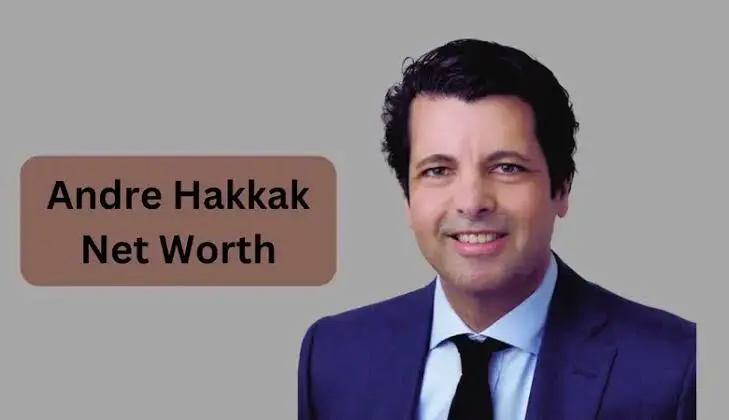Idea People vs. Biz Builders: Understanding the Key Differences Between Entrepreneurs and Founders.
While entrepreneurs and founders share the drive to launch new ventures, important distinctions exist between those who focus primarily on being their boss versus those committed to building large, long-lasting organizations. Entrepreneurs are often ideal people who value independence and flexibility over considerable growth.
They seek a lifestyle business that allows them to be in control of their destiny. On the other hand, founders see the potential for their ideas to scale significantly. As “biz builders,” they focus on growing their venture into a prominent company or brand.
Their end goal is creating sustainable market leaders, not just a small, self-employed venture. This article will explore the key motivational, strategic, and operational differences between entrepreneurs and founders to help explain their varying priorities and approaches.
Independence vs Impact
At the core of entrepreneurs and founders lies a fundamental difference in their core motivations. Entrepreneurs are largely driven by a desire for independence and being their boss above all else. They want the freedom and flexibility to work on their terms without bureaucracy or red tape. In contrast, founders are inherently compelled by the potential their ideas have to make a sizable impact. Yanni Hufnagel, an entrepreneur who founded Hennium Sports Management after years of experience as an assistant basketball coach.
They are motivated by the consequences their ventures could have in transforming industries or even society on a massive scale. Where entrepreneurs seek autonomy through small businesses, founders dream of harnessing disruption through prominent companies that influence marketplaces with thousands, if not millions, of customers.
Lifestyle Ventures vs Legacy Companies
Another divergence between entrepreneurs and founders lies in their end goals for the type of ventures they establish. Entrepreneurs typically aim to start modest lifestyle businesses or solopreneur pursuits that allow them to sustain themselves financially yet retain significant control and freedom in their work. They see their ventures more as a way to support their desired quality of life rather than transform an industry.
Founders, however, envision establishing legacy companies from the inception that will stand the test of time as notable brands and prominent players within their markets or sectors. They consciously plant seeds to cultivate sizable organizations with lasting impacts rather than short-term lifestyle firms with limited ambitions.
Short-Term Tactics vs Long-Term Vision
When it comes to strategic thinking and planning, entrepreneurs and founders also show diverging approaches. Entrepreneurs tend to prioritize short-term tactics and flexibility as they focus on the immediate needs to get their ventures off the ground. They operate without extensive foresight into future years. Founders, alternatively, strategize with a long-term horizon in mind. From the beginning, they consciously architect their ventures to scale up to 10x or 100x size through clear long-range vision.
They consider future capital needs, potential partnerships, industry shifts, product innovation roadmaps, competitive landscapes, exit scenarios, and other factors that will shape 5-10-year outlooks. Founders optimize for sustained growth rather than just surviving the next 12 months.
The Solopreneur Mindset
At their core, entrepreneurs exhibit a characteristic solopreneur mentality where independence and autonomy are highly valued. As a result, many entrepreneurs prefer to keep their ventures small with only a handful of employees or independent contractors. This allows them to personally work on diverse tasks and micromanage all aspects of the business operation. Founders, on the other hand, recognize from the start that they need the right team and structures in place to scale beyond a solo act.
They ensure systems and leadership are established to maintain well-defined processes and decision-making even when the founder is no longer hyper-involved in day-to-day tasks. The solopreneur mindset favors flexibility and direct control while founders distribute oversight to enable exponential growth.
Bootstrapping vs Big Bucks
When it comes to funding their ventures, entrepreneurs and founders also show divergent approaches. Entrepreneurs strongly believe in bootstrapping and self-funding their early-stage businesses through personal income and savings. They aim to become operationally profitable from the beginning. Founders, in contrast, recognize that achieving their ambitious goals may require sizable capital investments.
They are comfortable taking on investment from angel investors and venture capital firms to attain the big budgets needed for rapid hiring, product development, marketing, and other large-scale activities. Whereas entrepreneurs focus on immediately profitable self-sufficiency, founders strategically access growth funding to fuel their 10x trajectories.
Freelancing Freedom
At their core, entrepreneurs value independence and flexibility above all else. This allows them to pursue diverse passions and interests outside of their businesses. Some entrepreneurs essentially run their ventures as freelancing gigs that provide income but not stringent schedules or responsibilities. They appreciate leisure time for hobbies, volunteering, travel, or other projects. Leo Soulas is an entrepreneur known for his work establishing Bombyx, a startup focused on biomimicry and sustainable textiles.
Founders, however, take a far more monk-like approach to their ventures, where nearly all discretionary time and energy is laser-focused on growing the business. They are willing to forgo personal freedom or flexibility as needed to achieve product milestones, funding goals, revenue benchmarks, or other markers of company development. It is this single-minded intensity that delivers industry-shaping success at massive scales over lifetimes.
FAQ’s
What is the primary motivation of an entrepreneur?
An entrepreneur’s primary motivation is independence and autonomy. They want to be their boss and have flexibility in their work and lifestyle.
What is the main focus of a founder?
A founder’s main focus is on growing and scaling their business into a large, prominent company. They are singularly focused on achieving significant growth and building a sustainable, long-lasting organization.
How do their goals differ?
An entrepreneur’s goals generally center around having a small, self-employed lifestyle venture. A founder’s goal are to create a notable and valuable company or brand with a large market presence.
What time horizon do entrepreneurs typically have?
Entrepreneurs tend to have a short-term time horizon and are not usually focused on long-term planning and growth. They prioritize independence and flexibility over expansion.
How do founders strategize differently than entrepreneurs?
Founders strategize with a focus on scale and sustainability. They think about operational infrastructure, accessing capital, long-term product/market strategies, exit options, etc. Entrepreneurs take a more tactical, undefined approach centered around autonomy.
conclusion
while entrepreneurs and founders both launch new ventures, their motivations, goals, and approaches differ in fundamental ways. Entrepreneurs are primarily driven by independence and liberty to control their work as an individual or small team.
They aim to start lifestyle businesses without aspirations of sizable growth. Founders, alternatively, are compelled by large-scale ambitions from the outset. They envision shaping prominent industries through companies or brands that create substantial value. Founders strategize and structure their ventures to realize their grand visions, considering long-term planning, capital needs, and exit options.
For an economy and society, both play an integral role. Entrepreneurs fuel creativity and job creation, while founders may transform marketplaces through innovative new platforms that achieve global scale.







